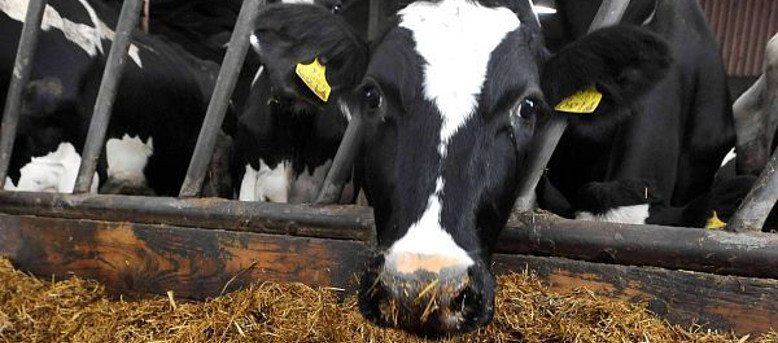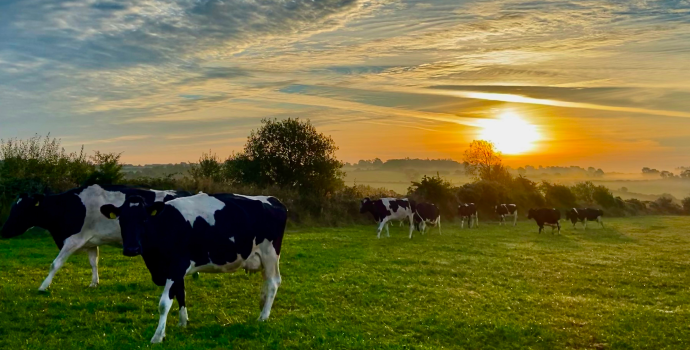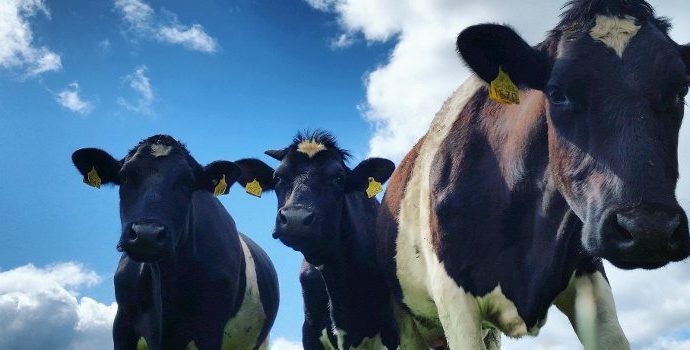Dairy Reports
Dairy Council Report July 2020

Market Report and Milk Prices
- The most recent IFA Dairy Market Blog is available here for greater detail.
- Global milk supply growth slowed dramatically in April.Weather events, low prices linked to COVID19 market impacts and production reduction initiatives (France, the US) contributed to this. Early indications are for a return to normal rainfall in a number of regions heretofore affected by moisture deficit – though for some regions fodder supplies for the year will be negatively affected.
- 30th June was the end date for APS. As of 28th June, 17730 t of SMP went into the scheme (none from Ireland). 60185t of butter (12604t from Ireland) and 45634t of cheese were applied for, with 100% of Ireland’s allocation received in the first 3 days (2180t). Disappointingly, only 45% of the total EU available tonnage was used, largely because of the inadequacy of the national allocations. It is believed over 25% of fresh butter production in the period utilised the scheme – so it would be wrong to suggest it did not play a part in helping with price recovery. APS may be needed again in the context of Brexit!
- Dairy commodity prices as reported to the EU MMO by EU member states have been increasing progressively from a trough of around mid-April, depending on products.
- In the most recent weeks, we have seen some stabilisation of those increases, but no real easing, as is visible from the graph on the right.
- Spot quotes are also continuing to firm, albeit slightly more modestly than in recent weeks.
- All commentators (Rabobank, INTL FCStone, Rice Dairy…) have linked the improvement in dairy markets to the fact that the reopening of the global economy is underpinned by unsustainable government spending and support, both directly to the dairy sector (US especially, where over US$1.2b was spent on supporting dairy farmers and dairy markets/food demand, in addition to support to businesses and employment, EU, and beyond). Most are concerned about a recession following any tapering off of those financial supports – though with an EU €750bn recovery package in the offing and an US presidential election in November, it is unlikely to happen in the short term.
- Consequently, for the coming months, the mood in industry has improved, with market sentiment stronger.
- Most international indicators have continued to firm, and are now close to or just above the average milk price paid by Irish dairy co-ops (which we estimate at 28.2c/l + VAT or 29.72c/l incl VAT). This is just under the May PPI (see table above right)
- Strong lobbying by the National Dairy Committee has helped highlight those positives, and secure stable milk prices for May milk, with Dairygold actually increasing prices by 0.5c/l.
- With the positive trends continuing through June, the Committee will seek improvements in milk prices by all co-ops.





Activity since last Council
- IFA’s weekly engagement with DII and other stakeholders, including Teagasc, DAFM, ICOS and ICMSA to review developments in the processing sector has been reduced to monthly and/or ad hoc from now on. Collaborative contingency planning between co-ops and hard work by milk collecting and processing staff in every co-op has meant all milk has been collected and processed through peak, and the very real concerns in spring are now behind us.
- The National Dairy Committee have contributed to the analysis by IFA of the new Programme for Government and to identify the issues of importance to the dairy sector.A number of feared elements which would have been damaging to the dairy sector did not make it to the final document (abolition of the N Derogation, the end to live (calf) exports, or a link being made between 7% annual green house gas reduction and reduction in the dairy herd) – largely reflecting strong and long lobbying of politicians by IFA. Some positive initiatives, especially with regards to the use of taxation to smooth income volatility, need to be exploited to revive some of our and ICOS proposals in this area.
- The Committee Chairman and Secretary have continued to participate in the Calf Stakeholders Group meetings.The work of the Group and its members has contributed hugely to increasing awareness of the importance of calf welfare and changed approaches by all farmers. Statistics made available to the group show that for male calves to late June, there was a slight decrease in male calf births, slightly lower resort to knackeries for young calves, big decrease in marts sales, a big increase in farm to farm sales, a massive decrease in exports, and a significant decrease in young calf slaughters (through the Newcastle West “processing” facility – different from knackeries). The Group is to be set up on a more permanent footing, with Terms of Reference being drawn up.
- On a related matter, the €4m calf investment scheme – the closing date for receipt of claims is 30th September 2020. Any delay in this will result in penalties reducing the grant rate.
- The Chair and Secretary have participated in the online launches of the Teagasc 2018 Sustainability Report (based on 2018 NFS) and the 2019 National Farm Survey.Both present some cause for concern in terms of sustainability, economic first, especially in terms of fast rising overhead costs, and environmental. It is essential that Teagasc and co-ops would identify the issues and work with farmers to help them address them.
- IFA has also participated in the ASSAP programme, which is showing a very strong engagement by farmers approached for participation (96% of the farmers approached accept to participate), and is progressing to support farmers in adopting mitigation measures to reduce the loss of nutrients and sediment losses to water courses on farms.
- We are also today participating in the Dairy Sustainability Forum, a joint forum between the dairy industry (DII and other stakeholders, including farm organisations), the DAFM, and the Dept of Housing (Environment), who engendered the ASSAP programme two years ago.
- The manner in which the milk price equivalent of the Ornua Purchase Price Index (PPI) is to be presented in future is currently the subject of a review by the Board of Ornua. IFA has always valued the PPI for the unique contribution to market transparency it makes to farmers, which is unparalleled in the dairy sector worldwide, and the envy of many other agricultural sectors. IFA is therefore very keen to secure the continuation of the publication of a transparent, credible, and well understood PPI further to the review.
However, with media reports suggesting that the review would consist principally of an increased processing cost calculation, understandable concern has been expressed by farmers as to the signal this would send to co-ops regarding their milk pricing decision at a crucial time.
A top-level meeting was held between IFA and Ornua, followed by a meeting of the full National Dairy Committee addressed by Ornua CEO John Jordan and Head of Risk Management Colin Kelly. IFA President, Deputy President and National Dairy Chairman and members of the National Dairy Committee expressed strong reservations regarding the proposed review, especially in terms of the justification for an increased processing cost, but also in terms of its timing and the strategy for its communication providing too short a lead up to the proposed implementation.
The National Dairy (Management) Committee are to meet later this week to discuss the issue in greater detail. The board of Ornua are to discuss this matter further at its July meeting, and the Chairman, who has already expressed strong reservations regarding the specifics of the review at the board table, will reiterate them strongly, taking on board fully the views of the Committee.
Upcoming issues
- Within 2/3 weeks, co-ops will be determining their June milk prices. IFA will monitor market developments and communicate those, which we hope will continue on the current more positive trend, to officers and members. We will also articulate our lobbying arguments in advance of the early to mid-July dates by which boards will be making those decisions.
- The renewal of the Nitrates derogation from 2021 is also coming up, and we have participated in a meeting with Teagasc to better understand the likely additional requirements, including a recalculation of the N load of a cow possibly from 85kgs to 89kgs (conservative figure), but also in terms of slurry storage requirements, spreading, and need to prove exports where farmers operate above 170kgs without derogation.As the Nitrates derogation is vital to the dairy sector, and bearing in mind the government formation talks involving the Green Party and their demands in those areas, the Committee has made a clear decision that will continue to work on this topic in conjunction with the Environment Committee.
| Chairman | Tom Phelan |
| Executive | Catherine Lascurettes |



